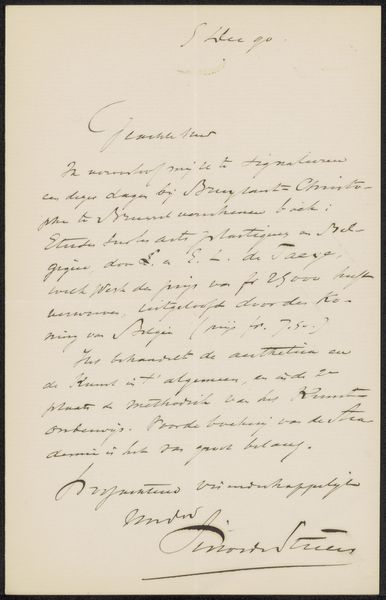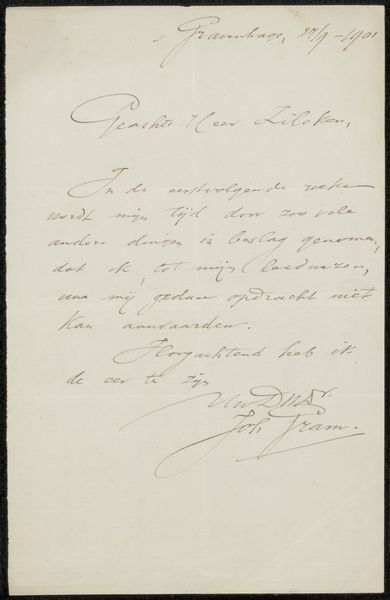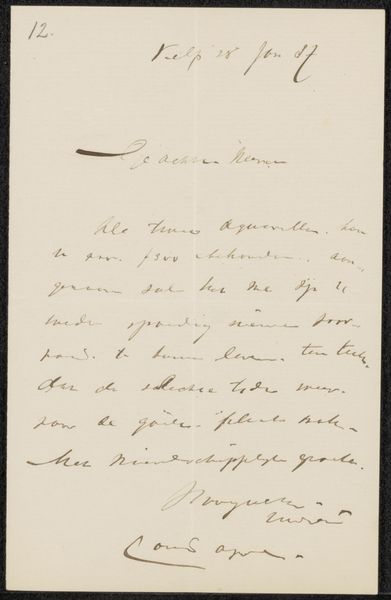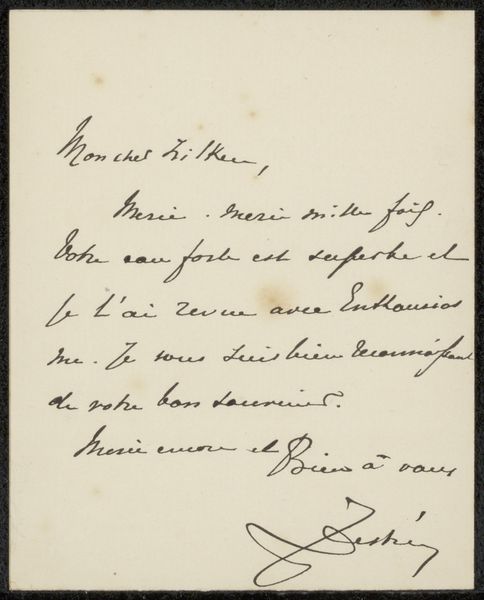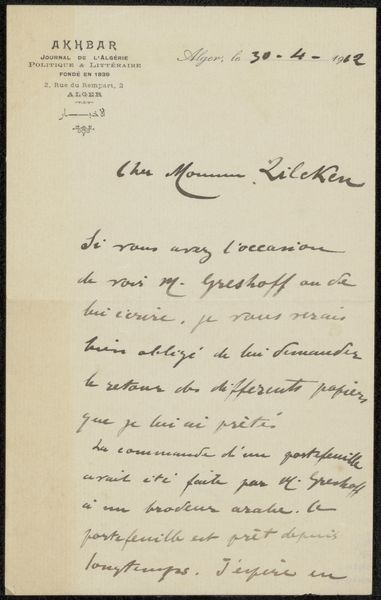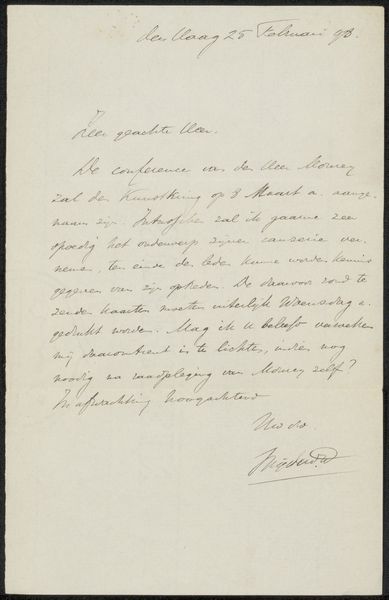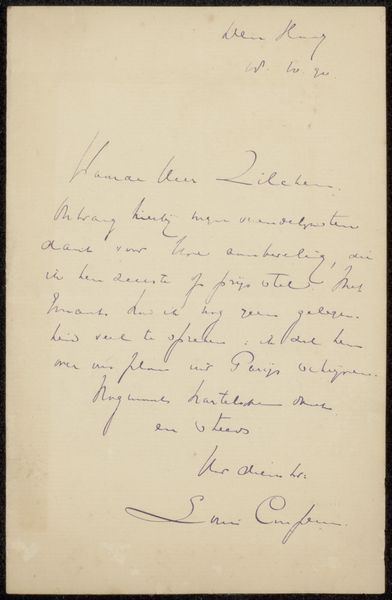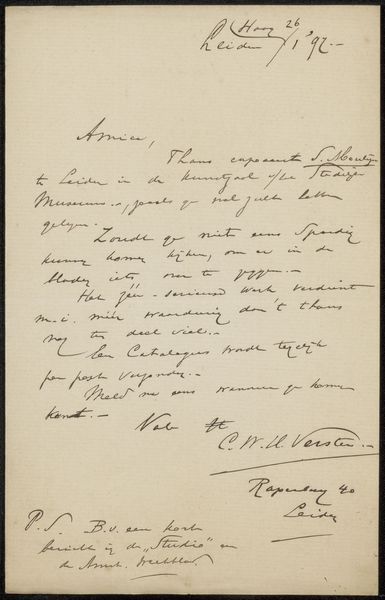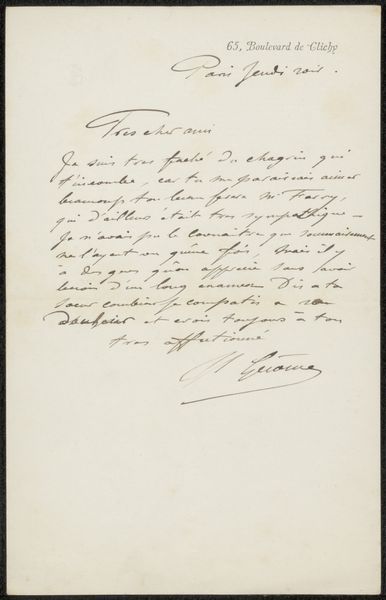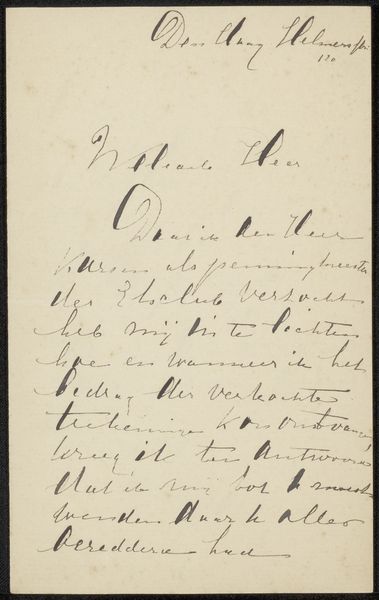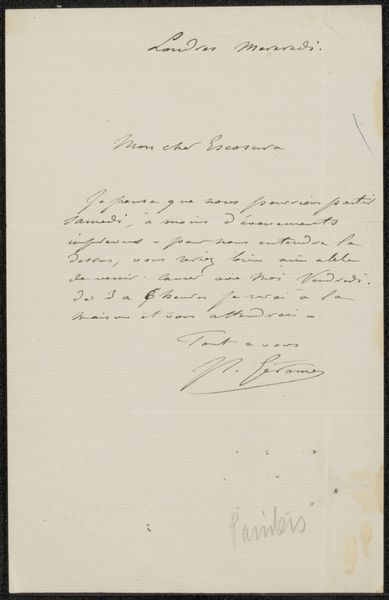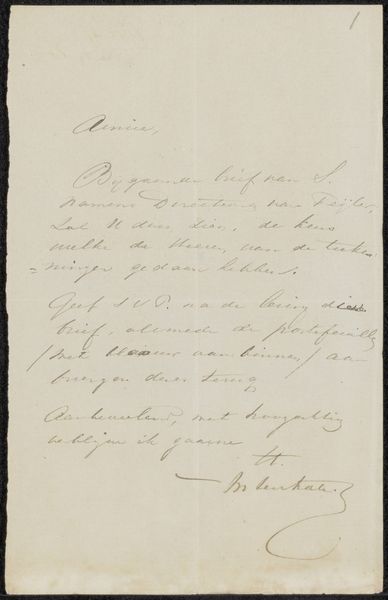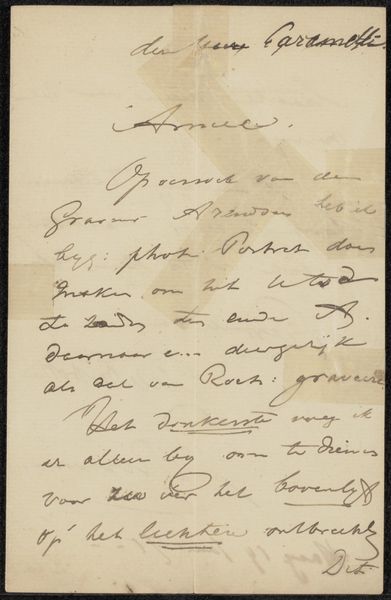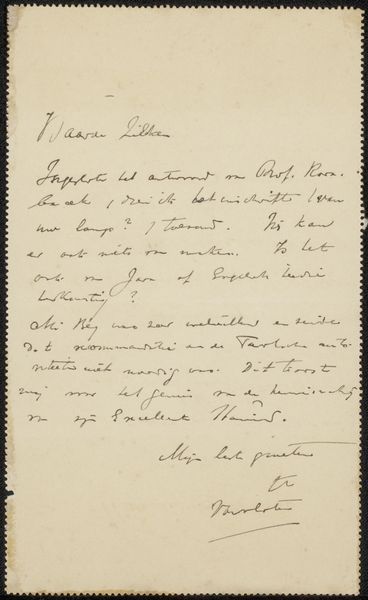
drawing, paper, ink, pen
#
drawing
#
pen drawing
#
pen sketch
#
paper
#
ink
#
ink drawing experimentation
#
sketchbook drawing
#
pen
#
calligraphy
Copyright: Rijks Museum: Open Domain
Editor: Here we have a piece titled "Brief Frans Buffa en Zonen," possibly from 1885-1889, by Louis Apol. It's an ink drawing on paper currently held at the Rijksmuseum. There's a delicate quality to the script, almost like calligraphy, but the paper looks quite aged. What stands out to you? Curator: What strikes me is how this seemingly personal letter intersects with the art world of the late 19th century. Apol, known for his landscapes, communicates here with Frans Buffa en Zonen, who were art dealers. It provides a glimpse into the socio-economic structures that supported artistic production. This wasn't just about inspiration; it was about commerce. How do you think such exchanges shaped Apol’s career, and Dutch landscape painting in general? Editor: That's fascinating! I hadn't considered it in terms of Apol’s career. The letter, then, becomes less of a simple note and more of a document revealing the artist's connection to the art market, right? Almost like a record of his professional life. Curator: Precisely! And more broadly, these types of documents – letters, receipts, exhibition catalogues – they inform how we understand the infrastructure of art. Who was buying, who was selling, whose work was being promoted, and why? The support of Frans Buffa and Sons certainly would influence Apol’s reach. The "politics of imagery", as such, is greatly shaped by its patronage. Editor: So by studying such pieces, it makes it easier to identify artistic influence but also how dealers can also contribute or affect that landscape, not just artists. Curator: Absolutely. It's a reminder that art isn't created in a vacuum. Galleries and dealers, as well as sociopolitical ideas, greatly help determine art's trajectory. Editor: That gives me a whole new perspective. I never really considered how much went on behind the canvas! Curator: And that's where art history gets truly interesting.
Comments
No comments
Be the first to comment and join the conversation on the ultimate creative platform.
